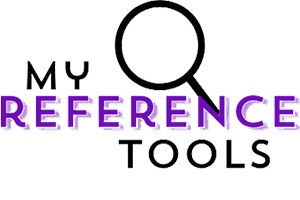Why Soft Skills Matter More Than GPAs for Professionals

When it comes to evaluating talent, many employers are looking beyond the numbers. A high GPA might open doors, but it’s often the less-quantifiable traits that ensure long-term success in the workplace. Soft skills are rapidly becoming the gold standard for professional growth and adaptability.
While the pursuit of academic excellence is admirable, modern workplaces require far more than a theoretical understanding of concepts. Success now depends on communication, teamwork, adaptability, and emotional intelligence. These capabilities don’t show up as neatly as a 4.0 GPA, but they have an outsized impact on professional performance and satisfaction.
Understanding Soft Skills
Soft skills encompass a range of interpersonal capabilities that help people work effectively with others. These include:
- Communication
- Teamwork and collaboration
- Emotional intelligence
- Problem-solving
- Adaptability
- Leadership
- Conflict resolution
Unlike technical or “hard” skills, soft skills are not tied to a specific task or subject matter. They help professionals thrive in environments where relationships, creativity, and fluid problem-solving are critical. For example, the ability to communicate effectively is just as valuable for a customer service representative as it is for a marketing executive. Emotional intelligence can help a software developer work seamlessly within a team, just as it can help a teacher connect with students and parents.
Although technical know-how and strong academic performance demonstrate competence, soft skills reveal how well an employee connects, adapts, and leads within a real-world business setting. Someone proficient in coding, for instance, likely needs solid collaboration and adaptability skills to meet deadlines and integrate their work into broader projects. It’s this blend of interpersonal ability and technical expertise that leads to long-term success.
The Evolving Definition of Professional Success
The traditional markers of achievement, such as GPAs, degrees, and academic accolades, still carry weight—but their relevance is shifting. Today’s organizations operate with flatter structures and collaborate across borders, time zones, and cultures. This complexity demands strong relational and adaptive skills. The curious, empathetic communicator often outperforms the isolated straight-A student.
Employers recognize that:
- Projects are increasingly team-driven, requiring workers to collaborate across functions and geographies. A team member who can align differing perspectives is invaluable.
- Innovation is fueled by diverse viewpoints and a willingness to explore uncharted ideas. Often, this comes from those with emotional intelligence more than those simply following established processes.
- High-pressure environments test resilience and problem-solving agility, which stem from qualities like adaptability and self-awareness, not memorized knowledge.
Simply put, a resume packed with academic honors or perfection in test scores doesn’t guarantee workplace effectiveness. For example, a graduate with top marks may struggle to mediate conflict or communicate with clarity in group settings, limiting their ability to maximize their technical expertise effectively.
A Real-World Example: Imagine two employees with similar technical skills vying for a leadership role. The one who can inspire trust, motivate peers, and manage interpersonal challenges will likely emerge as the stronger candidate—even if they had a less impressive GPA in college.
Why Soft Skills Are Vital
Building Stronger Teams
Workplace success increasingly hinges on teamwork. No matter the industry, few projects are completed in isolation. From brainstorming concepts to completing deliverables, every step benefits from productive collaboration. Clear communication and trust form the backbone of high-functioning teams.
Team members who listen actively, give constructive feedback, and offer support are far more effective. For instance, consider a marketing team preparing for a product launch. Strong communication ensures the messaging aligns company-wide, from design to sales, while mutual trust allows team members to meet tight deadlines with confidence. A lack of these skills, however, results in misaligned priorities, missed deadlines, and tense workplace dynamics that stifle creativity.
Statistics drive this point home. A study by the Project Management Institute revealed that 33% of project failures stem from inadequate communication. This underscores how critical it is for professionals to develop their interpersonal communication skills.
Navigating Change
Business landscapes change rapidly, from shifting technologies to evolving client needs. Employees who are adaptable and open to new ideas help organizations stay ahead of the curve. Perseverance, a strong work ethic, and a willingness to continuously learn often matter more than specifics of prior knowledge in fast-moving fields.
For example, think about the rise of artificial intelligence (AI). Many professionals who initially trained in traditional roles now need to integrate or compete with AI-driven tools. The employees who approach these changes with adaptability, finding ways to leverage new technologies, are often the ones driving innovation while others lag behind.
Data backs up the increasing need for flexibility in the workforce. According to LinkedIn’s 2023 Workplace Learning Report, adaptability is among the top soft skills sought by employers. This demand reflects the reality that industries are emerging and evolving faster than most academic curricula can keep up.
Leading With Empathy
Gone are the days when leadership meant issuing commands and waiting for results. Today, effective leaders are those who inspire, guide, and uplift their teams with empathy and emotional intelligence. Leaders who understand and respond to their team’s needs are better equipped to handle challenges, align priorities, and create an inclusive environment.
Empathy is especially critical during crises. For example, consider the challenges faced by organizations during the global COVID-19 pandemic. Leaders who communicated transparently, acknowledged team challenges, and prioritized emotional well-being built stronger, more resilient work cultures. Those who failed to connect often saw higher employee turnover and reduced morale.
These empathetic leaders who invest in emotional connections rarely learn this skill in academic courses. Instead, it comes from personal growth, introspection, and practice in real-world settings.
Elevating Client and Customer Experiences
No matter the industry, connecting authentically with customers is key to building brand loyalty. Professionals who bring empathy, patience, and problem-solving to customer interactions can turn a negative experience into a positive one.
For instance, a customer service representative handling a frustrated client might save the relationship simply by listening attentively and offering creative solutions. On the other hand, someone who lacks the ability to gauge emotion or think on their feet will likely drive the client away.
According to a PwC study, 73% of consumers rank customer experience as a crucial factor influencing their buying choices, yet only 49% of them feel that businesses provide a positive customer experience. This highlights the gap that soft skills, such as empathy and communication, can help fill.
Demonstrating Soft Skills in Action
Unlike a GPA, soft skills can’t be verified with a number or a grade on a transcript. Instead, they reveal themselves through behavior and experiences, both in and out of the workplace. Hiring managers increasingly look for concrete evidence of these skills during screening processes and interviews.
Examples include:
- Effective collaboration on cross-functional teams: Successfully working across departments to complete a project showcases communication and teamwork.
- Clear, persuasive written and verbal communication: Crafting a report that leads to actionable change, or pitching an idea that gets buy-in from stakeholders.
- Receptiveness to feedback and new ideas: Demonstrating a willingness to adapt plans after receiving constructive criticism.
- Leadership roles: Even unofficial leadership, such as mentoring a junior colleague, can exhibit initiative, empathy, and teaching skills.
- Volunteering or community involvement: Activities outside professional settings can demonstrate values like teamwork, adaptability, and emotional intelligence.
During interviews, storytelling is a valuable tool. For instance, a candidate might share a narrative about a time when they resolved a major conflict at work or navigated a high-pressure deadline. These anecdotes highlight the depth and importance of their soft skills in action.
The Bottom Line
GPAs reflect academic ability, but soft skills reflect workplace readiness. Business leaders consistently rank communication, adaptability, leadership, and critical thinking as their most prized skills. The growing emphasis on these abilities underscores the need for schools, workplaces, and individuals to focus more on cultivating them.
For individuals, this means seeking out opportunities to build soft skills through group projects, volunteer work, and professional development programs. For educators and employers, it’s about emphasizing the importance of interpersonal growth alongside technical training. For example, companies can provide training in emotional intelligence, conflict resolution, and active listening, ensuring employees are equipped to handle real-world challenges.
Ultimately, soft skills unlock potential. They empower professionals to not only excel individually but also elevate those around them. That potential pays off in innovation, productivity, and fulfillment—not just for the professional but for the entire team.
Want to boost your soft skills? Seek feedback, explore new challenges, and remember that every interaction is a chance to grow. Build relationships, practice empathy, and communicate openly, because soft skills are the key to building a lasting foundation of success in any career.



